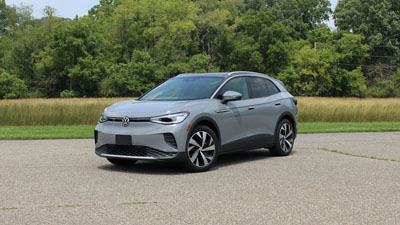Volkswagen initiated an ID.4 recall to address a stalling issue caused by software problems. The recall affects approximately 20,904 2021 ID.4 vehicles in the U.S.
The National Highway Traffic Safety Administration (NHTSA) published a post about VW’s ID.4 recall on Feb. 1. According to the German automaker, 2021 ID.4 cars have software issues that may cause the vehicle to stall while on the road.
VW further explained the software problem might cause the ID.4’s high voltage (HV) battery management control modules to restart. The ID.4 electric motor doesn’t receive power while the control module resets, even while driving. The software issue may also cause the pulse inverters to deactivate, although it is a rare scenario.
“If the HV battery management control module resets while driving, the vehicle’s electric motor will not be supplied with power for the duration of the reset," the NHTSA said. "In rare cases, the pulse inverter may be deactivated while driving. Each of these conditions may lead to a loss of propulsion without pre-warning and may increase the risk of a crash."
The NHTSA also said reports of the potential software issue started in July 2021. In September 2021, tests concluded “risk assessment indicated no unreasonable reason for motor vehicle safety.” Between September 2021 and August 2022, VW’s software issue was continuously monitored.
In January 2022, Volkswagen’s ID.4 supplier reported an issue with its pulse inverter software that could lead to the deactivation of the pulse inverter. Between August and September 2022, vehicle owner questionnaires were analyzed for any reports of ID.4 stalling events.
A few reports in the U.S. market indicated battery management software issues in the vehicle that led to stalling allegations. The NHTSA’s Office of Defects Investigations (ODI) discussed the reports of battery management software issues during its quarterly meeting in 2022 and initiated further investigations and analyses of the issue.
By October 2022, the software issue was presented to the Volkswagen Product Safety Committee, which decided there was “no unreasonable risk to motor vehicle safety” since the car’s steering and braking functions were not affected. The committee decided to address the issue as a service campaign.
However, in January, the committee was presented with potential field data from the U.S. market that led to the current recall.
“The recall decision is based on identified fault entries in U.S. vehicles which indicate that the recall condition could have been present: HV battery CU 384/pulse inverter 32 D,” explained the committee.














